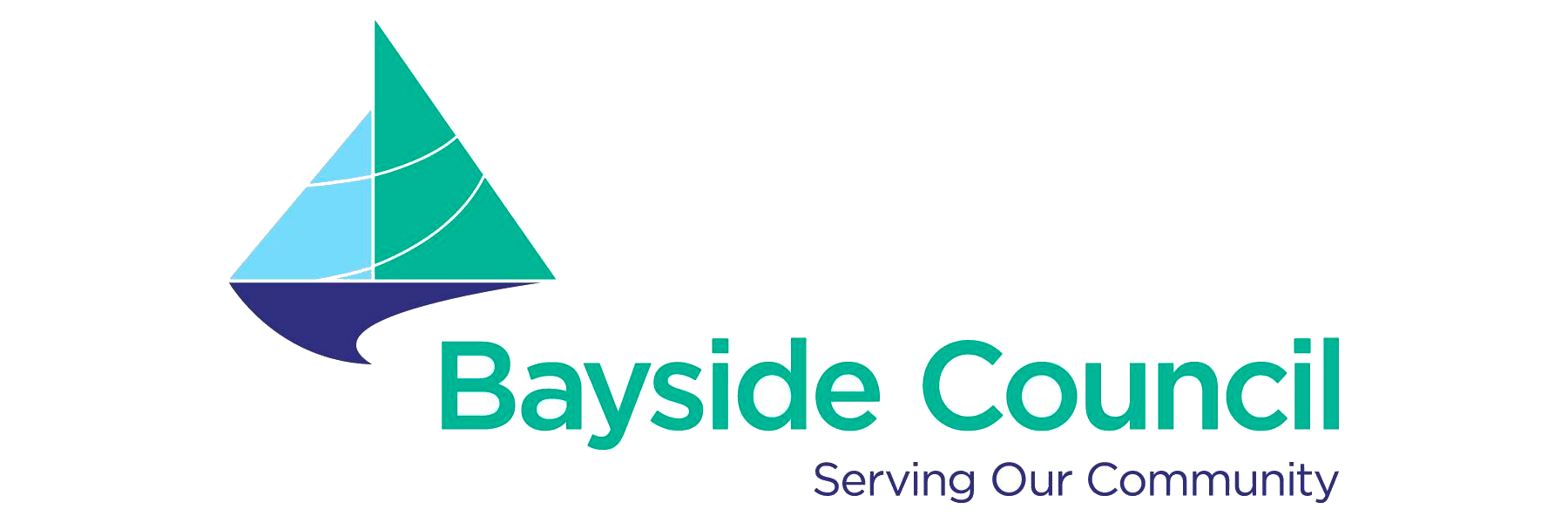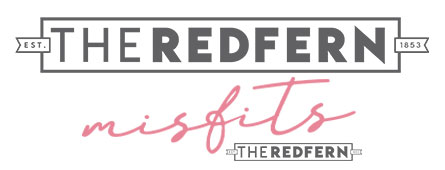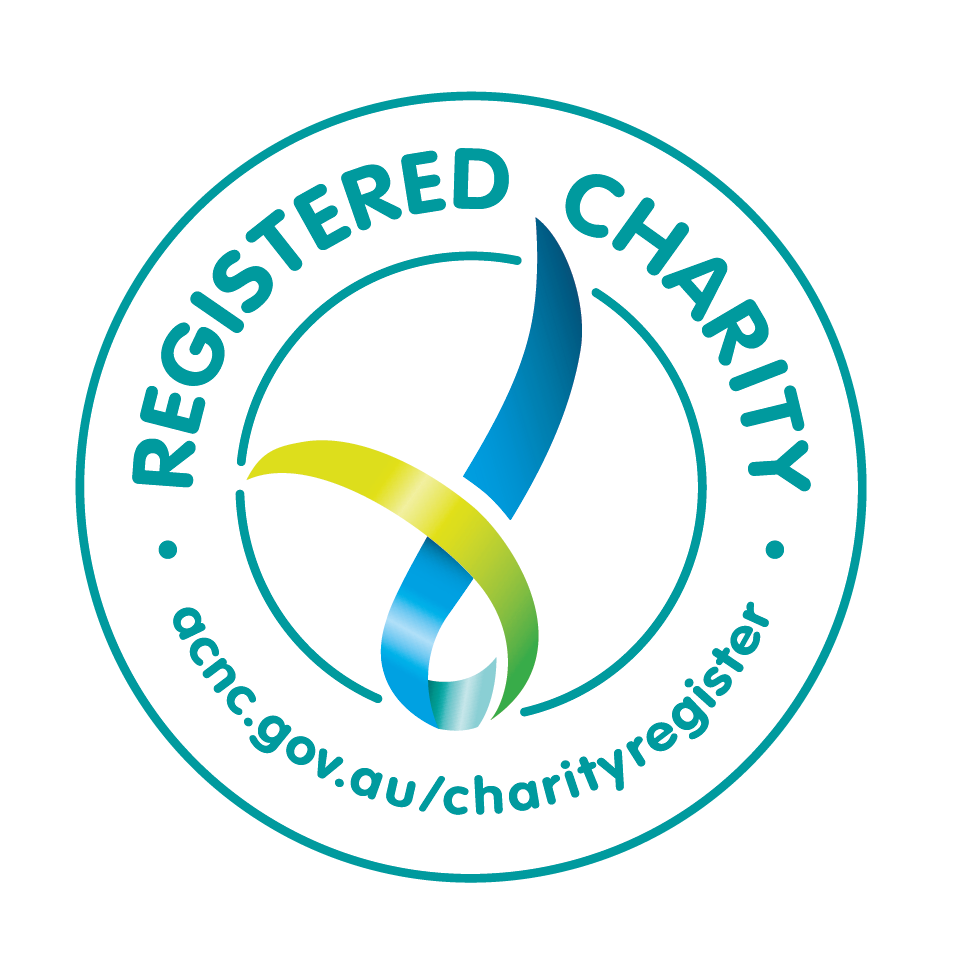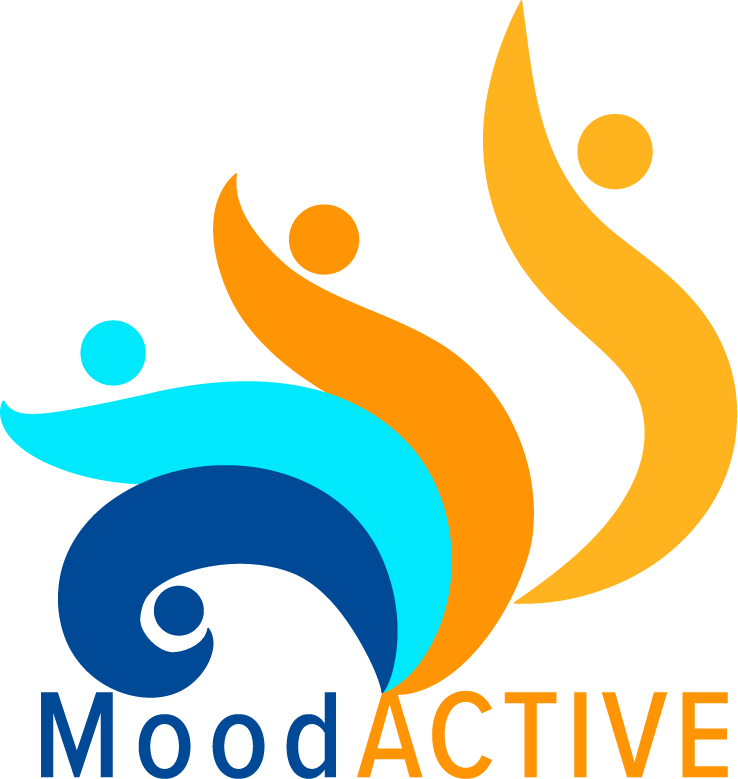
For Referrers
Mood Active’s vision is to see more Australians using exercise to improve their mental health.
Our 4-Week Wellbeing Workshop
This foundation of our services is a group physical activity intervention provided by a trained practitioner. It is specifically designed using evidence based medicine and science to support people with poor mental health to understand and use exercise independently as a tool for health, wellbeing and quality of life.
We have developed a client journey that describes the path that our clients (members) take in order to achieve a sustainable balance of exercise in their lives - improving their mental health as they learn and practice.
OUr courses and classes do not directly target thoughts and feelings. They use well-understood techniques to embed positive behaviour changes and provide a group learning experience for each participant, helping with their social confidence along the way.
The 4WWW has 4 modules - each delivered in a 2-hour group learning session, followed by an hour of exercise where the participants try out and practice what they have just learned. The particpants attend one session per week, held at varying times and locations.
These modules are as follows:
Getting started
- understanding why
- setting goals
- building momentum
When the going gets tough
- Understanding coping
- Disputing your thinking
- Mindfulness
Building confidence
- Learning how to fail
- Gaining help from others
Sustaining the habit
- How to form a habit
- Overcoming boredom
- Planning for lapses and failure
Once members learn the basics of making exercise part of their lives, we provide friendly, non-judgemental classes for them to practice this skill. Mood Active exercise classes are different from what they may experience in a commercial gym, as our goal is to help them develop the routines and skills needed to sustain an exercise program for life. We are also helping them build their confidence to attend fitness classes away from Mood Active, but if they want to keep coming to our classes, they are always welcome.
Who to Refer (and who not)
People who are suitable for referral are those suffering from mild to moderate anxiety, depression, and similar mood disorders.
We may accommodate people who fall outside these parameters once our psychologist has assessed their ability to gain benefit from this program. We cannot accept people whose conditions mean that they are unable to participate in group learning.
During this assessment process we will discuss our findings and recommendations with the person's treating doctor. We always srttve to set up a pathway to the Mood Active services if they are likely to be appropriate in the future.
Referral is simple, simply get your patient to join up on our website using the "Join Here" button on every page,. Once they have completed the initial registration, they will be emailed a link to a full registration questionnaire, in which they provide us with your details along with information on their physical and mental health. You may want to do this with the patient, however it is designed so that they can complete the process without any further assistance. Please note that this questionnaire contains a DASS21 survey, which is our primary screening test.
If you wish to have a more comprehensive discussion with our clinical team, please email us at info@moodactive.org.au and we will set up an appointment.
Service Delivery Details
Facilitators and Trainers
The 4WWW is facilitated by trained personnel with a variety of qualifications including psychology, fitness, nursing, group faciliation and adult learning.
Our programs are governed by our Committee, which comprises people with both clinical and non-clinical qualifications. You can see details of our Board members here.
Costs
The groups range in size from 6 to 12 participants. The participants are charged a nominal fee for each class as this has been proven to support their commitment to attendance.
Locations
We hold the 4WWW in Sydney City, Eastern suburbs and the Inner West and can have both daytime and evening sessions on weekdays and weekends.
Duration and Time Commitment
The commitment is for 4 sessions of 3 hours each (2 hours education and 1 hour exercise) over a 4-week period.
Other Information
4WWW sessions conclude with an exercise component which could include moderate physical exertion. We gather information on the participant’s ability to undertake physical activity as well as their mental state and the program can be adapted if the person has physical health problems that make it difficult to exercise, and to accommodate psychological aspects, for example anxiety or shame which may act as barriers to engagement.
Clinical Evidence
Exercise refers to a form of physical activity that is planned, structured, repetitive, and purposeful with a main objective of improvement or maintenance of one or more components of physical fitness. Physical inactivity is a major health problem. Sedentary behavior is associated with increased mortality and morbidity. Regular exercise has been shown to improve physical, functional and psychological health conditions. It improves sleep and reduces stress, anxiety and depression
In one meta-analysis, regular exercise (defined variably across studies) was shown to have small beneficial effects of total sleep duration, small-to-medium beneficial effects on ability to fall asleep faster, and moderate beneficial effects on sleep quality (Kredlow MA, Capozzoli MC, Hearon BA, et al. The effects of physical activity on sleep: a meta-analytic review. J Behav Med 2015; 38:427
High-intensity interval training (HIIT) and low-intensity training (LIT) have been found to be effective as a complement to first-line treatment for generalized anxiety disorder (GAD). [Plag J et al., Working out the worries: A randomized controlled trial of high intensity interval training in generalized anxiety disorder. J Anxiety Disord. 2020;76:102311. Epub 2020 Sep 24.
A 16-month randomized trial involving 74 outpatients with panic disorder, GAD, or social anxiety disorder compared the combination of CBT and exercise (assigned, at-home walking) with CBT combined with additional education-based sessions. A comparison of symptom levels before and after the 16-month intervention found reductions in subject-reported depression, anxiety, and stress in subjects assigned to CBT/exercise compared with CBT/education. Promoting walking as an adjunct intervention to group cognitive behavioral therapy for anxiety disorders--a pilot group randomized trial. Merom D et al., J Anxiety Disord. 2008 Aug;22(6):959-68. Epub 2007 Sep 29.
In several clinical trials, the practice of yoga has been found to reduce anxiety levels
Clinical trials suggest that exercise may decrease anxiety in patients with anxiety symptoms or disorders
The UK NICE guidelines for mental health suggest group exercise (may allow peer support from others who may be having similar experiences, can help with physical health too.
Health benefits of regular physical activity
- Lower risk of all-cause mortality
- Lower risk of cardiovascular disease mortality
- Lower risk of cardiovascular disease (including heart disease and stroke)
- Lower risk of hypertension
- Lower risk of type 2 diabetes
- Lower risk of adverse blood lipid profile
- Lower risk of cancers of the bladder, breast, colon, endometrium, esophagus, kidney, lung, and stomach
- Improved cognition
- Reduced risk of dementia (including Alzheimer disease)
- Improved quality of life
- Reduced anxiety
- Reduced risk of depression
- Improved sleep
- Slowed or reduced weight gain
- Weight loss, particularly when combined with reduced calorie intake
- Prevention of weight regain following initial weight loss
- Improved bone health
- Improved physical function
- Lower risk of falls (older adults)
- Lower risk of fall-related injuries (older adults)
- For pregnant women, reduced risk of excessive weight gain, gestational diabetes, and postpartum depression
- For people with various chronic medical conditions, reduced risk of all-cause and disease-specific mortality, improved physical function, and improved quality of life
Reproduced from: US Department of Health and Human Services. Physical Activity Guidelines for Americans, 2nd edition, US Department of Health and Human Services, Washington, DC 2018.
We are kindly supported by
Check us out on social media
LIFT YOUR MOOD
This is the spot to give us money
Mood Active’s sole purpose is to improve the mental health and well being of more Australian adults by ensuring that supervised supportive exercise programs are accessible and affordable to all.
We rely on the generous support of volunteers and donations, and are incredibly grateful to those who have provided their support and continue to do so on an ongoing basis.
We have deductible gift recipient status, which means your donations are tax deductible. Please keep a copy of your payment receipt for your records.
Partnering with Mood Active
I would like to enquire about sponsorship
Who are we and what do we do?
Mood Active is an organisation dedicated to enabling people to build exercise into their own mental health wellbeing routine.
We want to see more GPs and other clinicians, prescribing exercise to combat mood disorders!
We do this through supporting people on their journey to better mental health - starting with our 4WWW program.
Our programmes are built to be sustainable. As we expand, we are looking to partner with organisations that can help us grow and continue to help people with mental illness and other mood disorders across Australia in clinically proven ways that work for them.
Who do we work with?
Mood Active has partnered with Councils (City of Sydney, Randwick, Parramatta), Corporates (Jones Lang Lasalle), State Government (NSW Government) and Not-For-Profits (Stride, CASS). We can also work with family and/or friendship groups.
Our programs are based on research which shows that supervised, moderate to intense exercise for 150 minutes a week for 8-12 weeks can assist to alleviate the symptoms of mild to moderate mood disorders.
Our signature 4WWW has been co-designed by a Psychologist and Masters of Coaching graduate. Our programs can be tailored to suit small and large groups in both face-to-face and virtual settings. Over 70% of participants report an increase in both mood and physical activity levels upon completing our programs.
We need your support
We need support for to deliver our 4WWW program to vulnerable people
- our events - including large-scale events
- funding for transport – for our particpants who can't afford to travel
- equipment for the participants to us on the day
- help with developing, supporting and running the online systems that support these activities
We are looking for sponsorship partners who can help fund
- the administrative costs of running this charity, especially the travel and accommodation required for interstate expansion as well as salaries for the tiny team of Mood Active staff
- running our membership systems which are crucial for Mood Active growth to support more vulnerable Australians
What can we do for a sponsor?
Your involvement would demonstrate your support for this unique and much-needed cause. Sponsorship could provide the following opportunities:
In-house exercise programs
Our programs are suitable for anyone - and we have already tailored the 4WWW to work in a company setting for employees and managers to improve their mood - especially given the huge disruption to work practices driven by COVID-19 and the new approach to hybrid work that is sweeping the nation.
We can offer the option of running the 4WWW for your employees at a rate that will also subsidise our program for vulnerable Australians
Staff engagement
- Assisting at Mood Active events with activities on the day.
- Holding joint fundraising events, e.g. corporate golf days.
- Your staff can bring their skills to our team assisting in back-office support tasks.
Promotional Opportunities
- Facilities Sponsorship - Banners at the locations of Mood Active events.
- Co-branding of equipment – for example, shirts and caps at Mood active classes, fundraising events and Mood Active volunteer trainers.
- Online presence - web site main banner, Facebook/Instagram/Twitter, event registration and communications, banners in member e-newsletters and other emails.
- Signage and speaker opportunities at National and State-based annual fundraising events.
We can offer tiered sponsorship arrangements depending on the level of support ranging from:
- presenting partner;
- supplier partner; and
- official partner.
Classes
- How do I join?
You can join on the website here. If you have any questions or concerns, please contact us via the button at the bottom of each page or phone our Operations Manager on 0412 190 842; our referral procedure is informal, although it does help us to know of your referrer (GP, psychiatrist, psychologist, community mental health centre etc) if any.
- How much does the program cost?
membership and the 4WWW are free as they are subsidised by our sponsors and partners. the supported exercise classes attract a small fee, generally $5.00, payable at the time of booking. Don't worry, if you have to cancel we can generally refund your fees anyway (as long as you don't leave it to the last minute).
- What is the registration/assessment procedure?
We use the DASS (Depression, Anxiety & Stress Scales) and RDQ (Remission from Depression Questionnaire) and a depression symptom checklist to assess mood functionality of each participant when you join.
- Can I attend on a casual basis?
Yes. We normally require that you undertake the free 4WWW course prior to attending supported exercise classes, but if this is not possible for you, please contact us to discuss your specific needs. We will try at all times to help.
- Can I continue to attend classes forever?
Yes, our Casual classes are designed to help you keep up your exercise routine. We do, however, encourage you to improve your confidence to the point where you can access the much wider range of exercise classes provided by community gyms such as PCYC or commercial gyms in your local area. If you can do this, then you can give yourself a pat on the back. If this takes a while (or you never get there), we will always welcome you at Mood Active classes.
- Are the exercise trainers certified and vaccinated?
Yes. Whether yoga, circuit fitness, cardio tennis, or any of our classes, all our trainers are fully accredited, insured and First Aid certified. We require all our trainers to be vaccinated for COVID-19, including keeping up-to-date with boosters.
- Is there any medical or psychological intervention offered by Mood Active?
No, we run group exercise classes. All our trainers and committee members do however have an interest in and commitment to exercise as an invaluable therapy option for treating depression and other mood disorders.
Referring GPs, Psychiatrists & Psychologists
- How do I refer a patient/client?
No formal referral letter is required. You can either call or text our Operations Manager on 0412 190 842 or use the contact form to pass on your client's details and our Operations Manager will get in touch with them. Your client can also contact us directly.
- How do I decide if this program is right for my client?
We work with people suffering from a range of mood disorders: depression, anxiety, bipolar disorder, post-natal depression and PTSD. The program is not suitable for patients suffering acute psychosis and/or at immediate risk of self-harm.
- What if my client needs support or becomes distressed during a class?
Our trainers have experience helping people who are struggling with depression/anxiety, and have access to advice and guidance from a clinical psychologist. If you would like us to stay in contact with you regarding your client’s progress we are happy to do so.
Operations
- What kind of entity is Mood Active?
Mood Active is an incorporated association and is also registered with the Australian Charities and Not for Profits Commission (ACNC). ABN: 89 374 919 389
- How is Mood Active managed?
The committee is currently made up of five people with expertise in group exercise, psychology research, media & communications, events and finance. The day to day management of Mood Active is undertaken by the General Manager, accountable to the Committee.
- Will my personal information remain confidential?
Yes. Information on all our participant assessment forms is protected by our constitution and we have procedures to ensure its confidentiality. We will only follow-up with your referring GP or psychologist/counsellor if you are happy for us to do so.
- Is Mood Active NDIS Registered?
No, however, our programs and classes are eligible for NDIS funding from your plan. If you have any queries on this matter, please consult your plan manager.
Funding
- Where does Mood Active get its funds from?
Grants, program contributions from participants; donations/sponsorship (private & corporate); our own fund-raising events.
- How can I contribute?
You can help us to keep Mood Active classes going by making a donation via PayPal - see the tab on the right hand side of the page - and keep your tax deductible receipt!
Finances
- If I make a donation is it tax deductible?
Yes. Mood Active is endorsed by the ATO for Deductible Gift Recipient Status (DGR).
- Is Mood Active licensed for fundraising activities?
Yes. Cert no. CFN 23385.
- Does Mood Active get its financials audited?
Yes. Our financial reports are audited annually by Sea Change Accounting.
- Does Mood Active have procedures for handling cash & expenses?
Yes. We have transparent authorisation procedures in place for all expenses and payments.
- Is the Mood Active association insured?
Yes. Public liability & professional indemnity insurance. Lloyds Policy no. GL2372 and AL0063.














